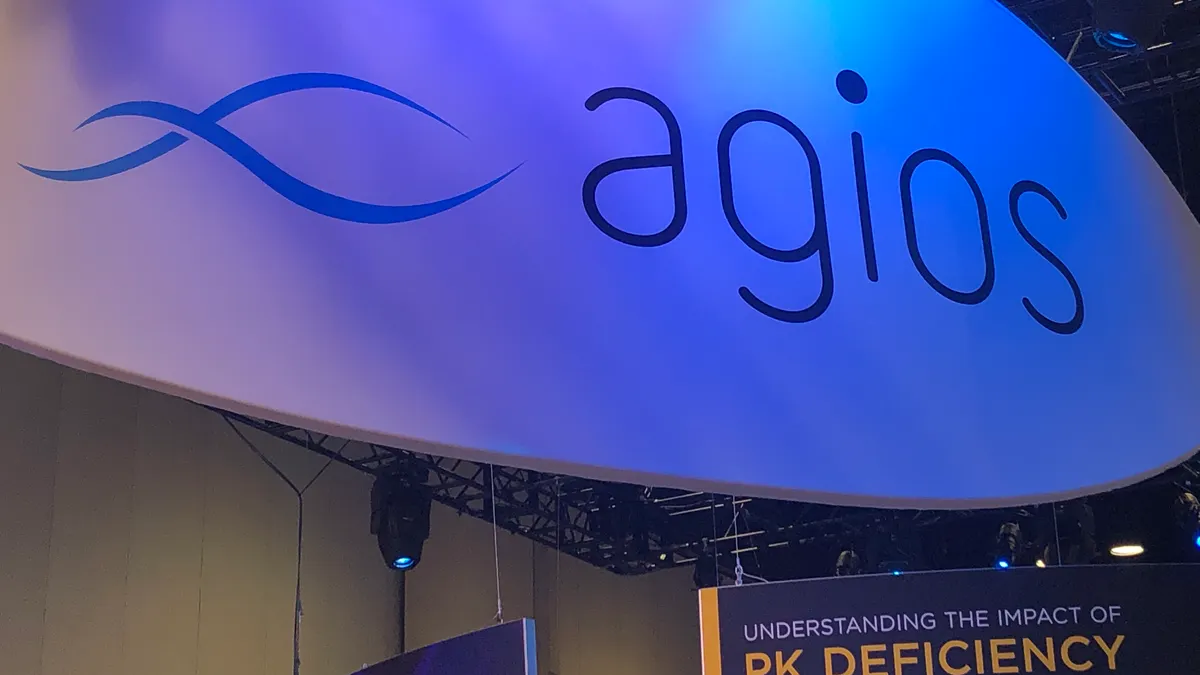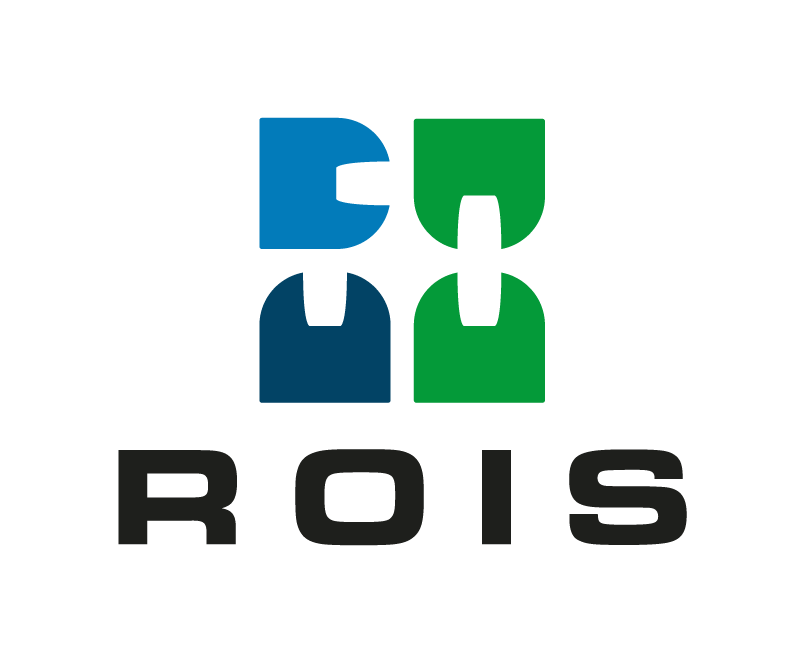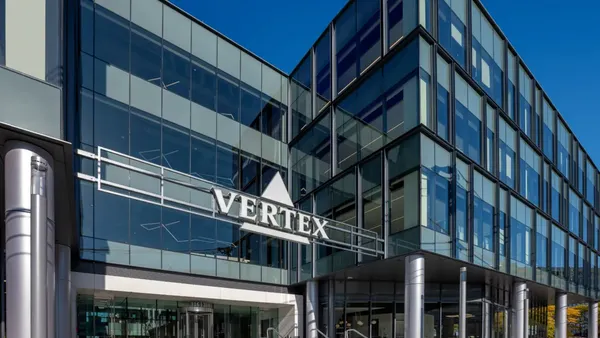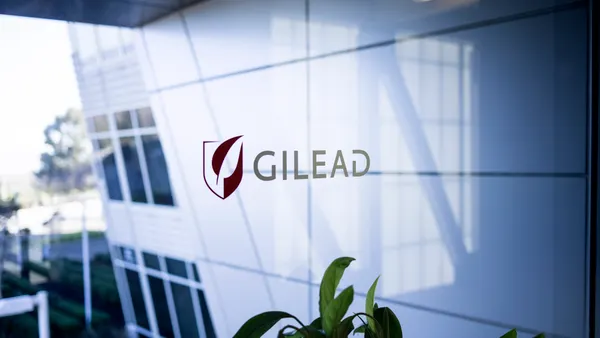Dive Brief:
- Agios Pharmaceuticals’ anemia pill Pyrukynd missed one of two main goals in a Phase 3 trial in sickle cell disease, failing to significantly reduce the number of pain crises that occur from blood vessel blockages when compared to a placebo, the company said Wednesday.
- The drug, known scientifically as mitapivat, did help people who took it produce more healthy hemoglobin, meeting the study’s other main goal, according to Agios. Trial enrollees who had a hemoglobin response were also more likely to see a significant reduction in pain crises. The company intends to discuss an approval application with U.S. regulators, too.
- Still, Agios’ share price was nearly halved Wednesday morning, falling from about $45 to $24 apiece. The company has been awaiting a Food and Drug Administration approval in a different type of blood disease, but the agency delayed its decision in September. A verdict is now expected by Dec. 7.
Dive Insight:
The treatment landscape for sickle cell disease has been something of a roller coaster ride over the last few years. In 2019, a long-used medication, hydroxyurea, was joined by Novartis’ Adakveo and Pfizer’s Oxbryta. Genetic medicines from Vertex Pharmaceuticals and Bluebird Bio arrived a few years later. But European regulators have since revoked Adakveo’s marketing authorization, and Pfizer — which spent more than $5 billion to gain control of Oxbryta — withdrew the drug in 2024.
Uptake for the genetic medicines has been slow, too. Vertex recently reported a total of 165 people have had their first cell collections for its treatment, Casgevy, as of Sept. 30. Before Bluebird was taken private, it recorded $11 million in 2024 sales for a treatment priced at $3.1 million.
Those setbacks have left an opportunity for newer entrants such as mitapivat. Sold as Pyrukynd for a rare form of anemia, mitapivat stimulates an enzyme called pyruvate kinase that can aid in red blood cell survival, making it potentially useful in diseases like sickle cell and beta thalassemia. Clearances there could be a boost for Agios, as the drug only generated about $22 million in sales over the first nine months of the year.
Agios could still gain one approval in beta thalassemia within the next month. But clearance in sickle cell will hinge on regulators’ view of the study results disclosed Wednesday.
In the trial, titled Rise Up, Agios enrolled 207 people with sickle cell and randomized two-thirds to receive Pyrukynd, with the rest getting a placebo.
On the main measure it met, hemoglobin response, Pyrukynd helped 41% of those treated achieve at least a 1 gram per deciliter of blood increase in the oxygen-carrying protein, versus only 3% in the placebo arm. According to Agios, the responders had a mean change in hemoglobin of about 1.6 grams per deciliter.
The difference between groups in the annualized rate of sickle cell pain crises, however, didn’t reach statistical significance. Those who got Pyrukynd had about 2.6 of these crises per year, versus 3.1 for those who got a placebo.
“The data from Rise Up demonstrate that treatment with mitapivat significantly improved hemoglobin concentration and reduced hemolysis,” said trial investigator Biree Andemariam, a medical professor at University of Connecticut Health, in a statement provided by Agios. “We also see that patients who achieved the threshold of hemoglobin response also experienced clinically meaningful benefits in the rate of sickle cell pain crises and hospital visits for those events, as well as in fatigue.”
If the FDA chooses to review an application for mitapivat in sickle cell disease, it may need to balance that mixed data with an emerging safety concern. The agency is taking extra time to evaluate the drug in beta thalassemia to assess a protocol designed to lower the risk of liver cell damage or inflammation seen in testing against that disease.
In announcing the sickle cell results, Agios said “liver abnormalities” seen in study volunteers “were not suggestive of drug-induced hepatocellular injury.”














